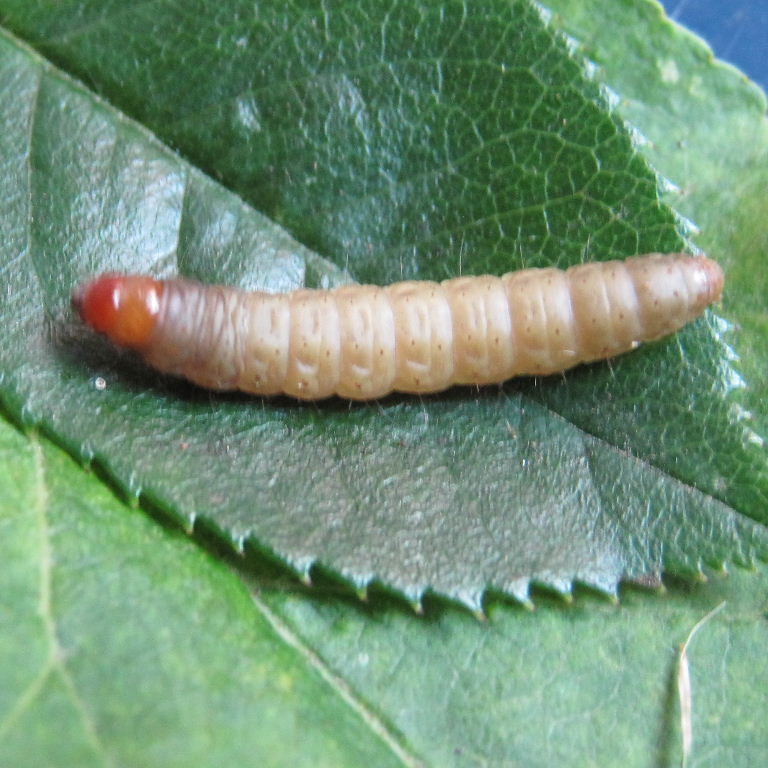Orange Swift Moth Triodia sylvina (formerly Hepialus sylvina)
Other moths of the Swift family are shown further down the page
Orange Swift moth above, wingspan 32-48mm; UK flight time Jun-Sep.
Moths of the Swift family are primitive and have no mouthparts so don't eat as adults; they survive on the fat stored as a caterpillar.


Male Orange Swift above (female is larger and less brightly-coloured).
Common Swift Moth formerly: Hepialus lupulinus; revised: Korscheltellus lupulina


Not as brightly-marked as its Orange cousin, the male Common Swift, above left, has more-defined marking,
in brown and white, than the softer olive-khaki female, right. UK flight time May-Jun.


Head on the Common Swift, also called the Garden Swift, looks like a lion with its tawny mane.
Wingspan 25-40mm, female (above right) larger than male (above left).



Caterpillars of the Swift family look similar and all live underground eating roots.
These cream-coloured larvae with brown heads and double "port hole" spots are thought to be Common Swift.
Ghost Moth/ Ghost Swift Hepialus humuli


A member of the Swift family, the male Ghost Moth (also Ghost Swift) shown above left has snowy (ghostly)
white wings and a "ghostly" habit of an undulating up and down flight when displaying to attract a female (hence the name).
Many thanks to Rachel Isherwood for the photo of the male Ghost Moth. Wingspan: male 42-46mm; female 46-50mm.


The female, above, looks very different. She is much larger and has orange patterns on yellow.
Unusually for moths, it is the female ghost moth that is more attracted to light than the male (usually the reverse).
Many thanks to Terry Hobbs for his photos of the female ghost moth shown here.
Another lion's mane. UK flight time Jun-Jul.


These very white caterpillars with red heads are thought to be Ghost Swifts..

